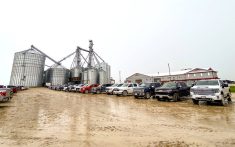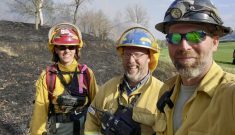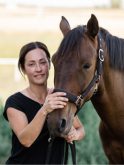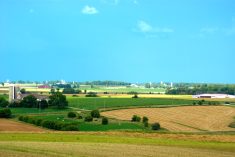Daniel Chiappetta has had to be creative in making his way into farming and that route has included investing in quicker return areas outside of agriculture and in targeted farm-related rental agreements and purchases.
Chiapetta, an account manager for TD bought his first farm two years ago. And then he sold it because it made sense and will eventually allow him to invest in larger acreage.
Why it matters: Finding a way into a capital-intensive industry like farming is difficult if one doesn’t have family members involved, but some young farmers are finding ways to make it work.
He did not grow up on a farm or have any relatives with farms, so Chiappetta realized he had to find a way to make it on his own.
He began farming around 2013 as he headed into his fourth year of university by leasing acreage that was once a pumpkin patch where he worked.
Within his first year of farming, Chiappetta learned valuable lessons.
He tried to do everything himself, and as he began to understand he didn’t have the proper equipment or the knowledge on how to fix it, he hired custom operators to do all the field work.

“I can focus on the markets, figure out how to sell my soybeans, and more importantly have time to do other things like generating an income from a full-time job.”
Chiappetta also began to understand that the crop is a liability until it’s in the bin.
“I gambled my tuition, I literally had everything at that time riding on these soybeans, I was pretty stressed. It was a big lesson to learn that I couldn’t count on that income.”
Once he had his first crop harvested, Chiappetta began to look at the big picture. He wanted to buy a chunk of land and farm.
He found a full-time job and put emphasis on money and setting goals to buy a farm.
Read Also
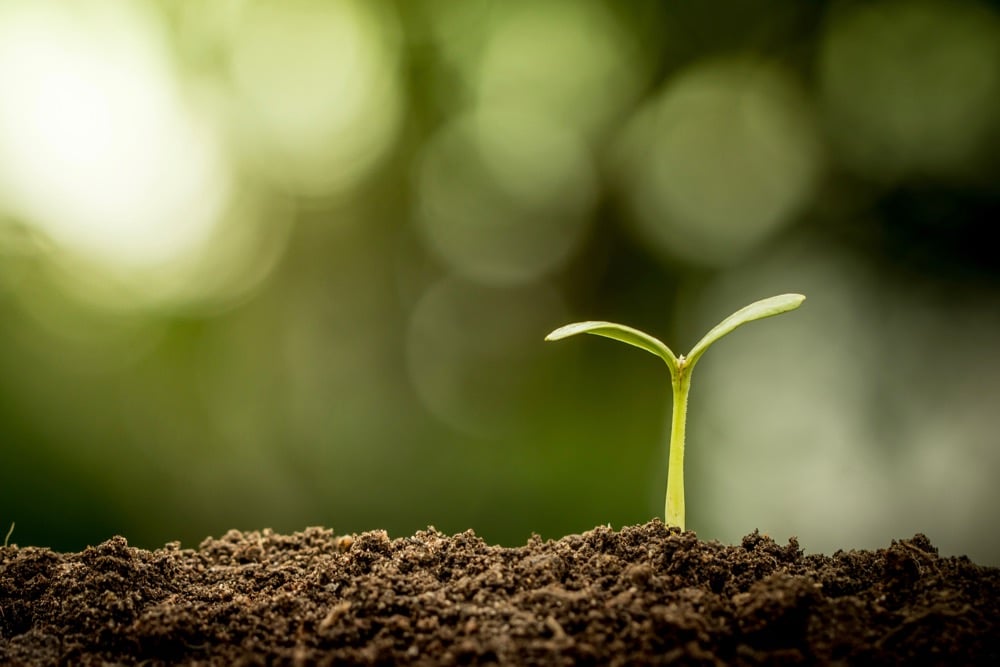
Ontario’s agri-food sector sets sights on future with Agri-Food 2050 initiative
The first-ever Agri Food 2050, a one-day industry event dedicated to envisioning the future of food and farming in Ontario,…
Being an account manager and an agriculture business graduate Chiappetta understood there were numerous factors to consider to purchase his first large piece of land:
- A 25 per cent down payment wasn’t available to him.
- All assets he purchased had to have the ability to service debt and not chew up his cash to make loan payments.
- The uncertainty of cash flow on a farming operation. “What you get on a corn crop is different than what you get on a wheat crop.”
- The economic, market, price and interest risk.
“It seemed impossible for me at that time. Those are the factors you have to figure out. Leverage is key, but not over-leverage,” he said.
Management is one of the most important factors of any business and that involves the ability to capitalize on opportunities.
“If you have 25 per cent stake, the banks are taking 75 per cent. I figured this was a no-brainer. I have a full-time job, I can make it work with leverage so long as I can prove that I can pay the bank back.”
Chiappetta knew he wasn’t going to buy a farm right out of university, so he bought a house.
“The first house I bought with the money I got from the soybeans in university, paid my tuition, put the rest into the down payment with a buddy and bought the house.”
Chiappetta his house-ownership partner renovated the house and rented it out.
It was working for him so he continued to do this.
“If I can put five per cent down (through a CMHC insured mortgage), I can manage it, then replicate this and purchase a farm.”
At this point, Chiappetta was learning how to manage things, and how to deal with the trades, how to deal with bankers, insurance companies, tenants property taxes and bills.
“It’s about the lessons learned. It’s about the management. It’s not about buying these houses. It’s about learning how to be a business owner in a world where it’s extremely difficult to start off in that high capital industry.”
In 2018, Chiappetta bought his first farm, 60 acres in Grey County but the only way it worked was to rent out the house and land.
“We are running businesses here at the end of the day. We are trying to make a return on investment (ROI). Every aspect of the business has to be a return on investment.”
Farmers need to look at the amount invested, the revenue and expenses.
Chiappetta says understanding cost of production is of the utmost importance.
Record keeping, updating records often, seeking, testing and adapting best practices will help farmers to succeed.
“I’m just trying to encourage you to think outside the box. If you are not challenging the norm how do you know if you are being efficient or being productive or driving forward and growing your business?”
Chiappetta sold his first farm to ensure he received optimal return.
“I looked at the big picture. If I want to scale and be a full-time farmer it’s not going to be from buying 60-acre chunks here and there.”
He chose to focus on growing crops from the rented land he has accumulated and make margin. He found quick returns by investing in town property and earning monthly rent.
“I love farming, but from an ROI standpoint I’m dumping cash into the farm account (from personal). I took that same capital and if I can invest it somewhere else, making that same return meanwhile still farming with higher capital and an income stream, eventually I can buy a 260-acre farm with that same capital in 10 years.”
As a banker Chiappetta is looking at taking his capital and scaling it up.
“It’s really about knowing your numbers and taking that scale and moving it forward. Thinking of the most efficient way to invest your money.”





